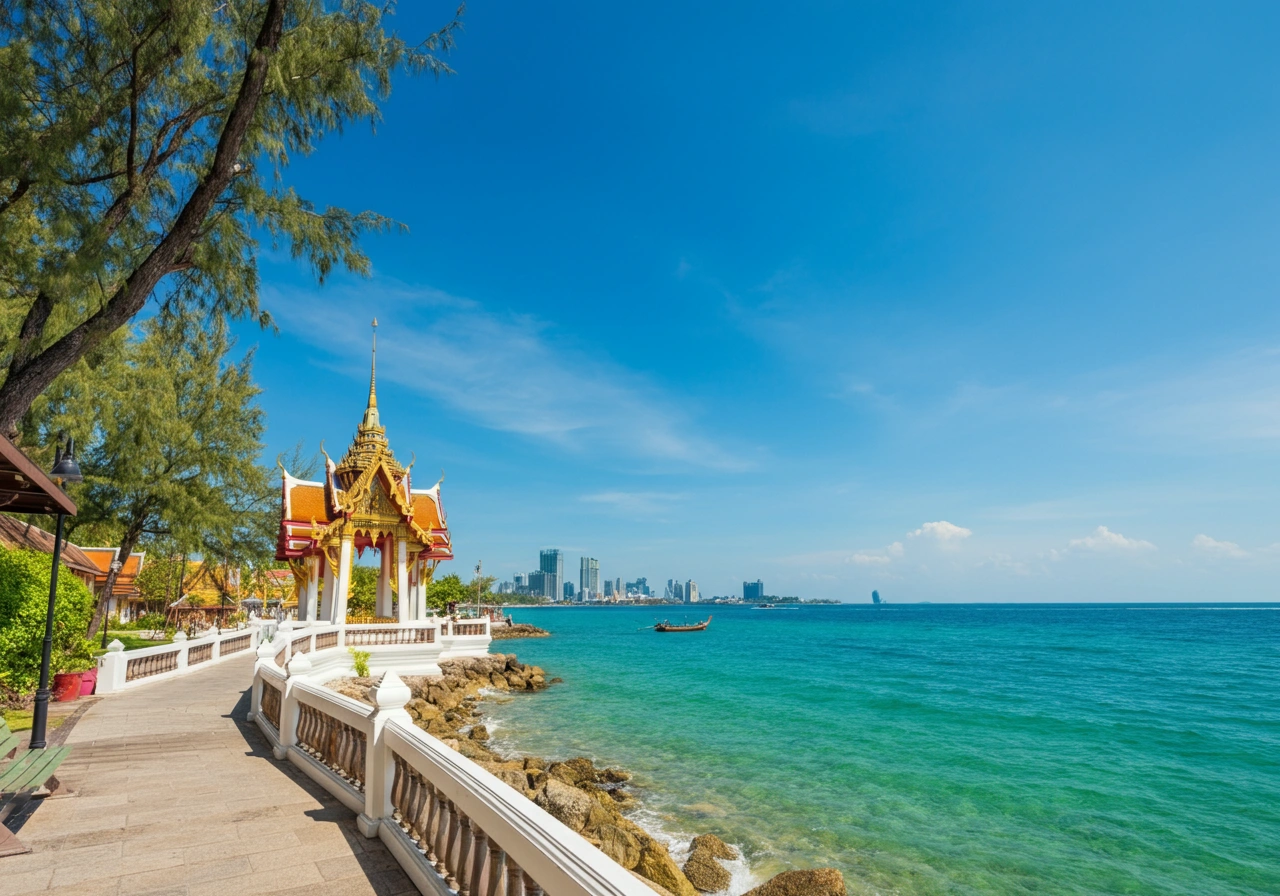Dreaming of trading your routine for a life filled with vibrant street food, ancient temples, and stunning beaches? Moving to Thailand might be the adventure you’re looking for. The country, known as the “Land of Smiles,” has long been a magnet for travelers, retirees, and digital nomads seeking a high quality of life at an affordable price.
This guide will walk you through the essentials of expat life in Thailand. We will cover everything from the cost of living and popular cities to navigating visas and healthcare. By the end, you’ll have a clear picture of what it takes to build a successful life in this beautiful Southeast Asian nation.
Why Choose Expat Life in Thailand?
Thailand offers a unique combination of affordability, culture, and convenience. The warm climate, friendly people, and delicious cuisine are major draws. Whether you’re looking for the bustling energy of a megacity, the calm of a mountain town, or the relaxation of a tropical island, you can find a community that fits your lifestyle.
Furthermore, a well-established expat network and modern infrastructure make the transition relatively smooth. You can enjoy high-speed internet, excellent healthcare, and convenient transportation while immersing yourself in a rich and ancient culture.
Breaking Down the Cost of Living in Thailand
One of the biggest attractions for foreigners is the low cost of living. While your expenses will vary based on your lifestyle and location, you can live comfortably for a fraction of what you would spend in a Western country.
A single person can live well on approximately $1,500 to $2,500 per month. This budget covers rent, utilities, food, transportation, and entertainment. Couples might spend around $2,500 to $4,000 for a comfortable lifestyle. Living in major tourist hubs like Phuket or prime areas of Bangkok will be more expensive than in cities like Chiang Mai or smaller towns.
Here’s a general idea of monthly costs:
- Rent (1-bedroom apartment): $300 – $800+
- Utilities (electricity, water, internet): $70 – $150
- Food (mix of street food, local markets, and Western groceries): $250 – $400
- Transportation (public transit, ride-sharing): $50 – $100
Popular Cities for Expats
Thailand’s diverse landscapes mean there’s a perfect home for every type of expat.
Bangkok: The Bustling Metropolis
As the capital, Bangkok is a chaotic yet captivating city. It’s the commercial and social heart of Thailand, offering world-class dining, shopping, and nightlife. Expats here enjoy modern conveniences, extensive public transportation (like the BTS Skytrain and MRT subway), and endless activities. It’s ideal for those who thrive on energy and want access to top-tier amenities and international job opportunities.
Chiang Mai: The Northern Retreat
Nestled in the mountains of Northern Thailand, Chiang Mai is a favorite among digital nomads and retirees. Its pace is much slower than Bangkok’s, and the city is known for its creative community, countless cafes, and proximity to nature. The cost of living is significantly lower here, and the cooler climate provides a pleasant escape from the southern heat.
Phuket: The Island Paradise
If your dream involves living by the sea, Phuket is the place to be. Thailand’s largest island boasts beautiful beaches, a vibrant international community, and a well-developed tourism infrastructure. It offers a resort lifestyle with modern comforts, though it comes at a higher price point than other regions. It’s perfect for those who love water sports, beach-hopping, and a lively social scene.
Navigating Visas and Long-Term Stays
Understanding the visa system is crucial for anyone planning on moving to Thailand. The rules can be complex and are subject to change, so staying informed is key. This information is for general guidance only; always consult official sources.
Most people initially arrive on a Tourist Visa. For longer stays, you will need to apply for a Non-Immigrant Visa. Common options include:
- Non-Immigrant B (Business) Visa: For those who have a job offer in Thailand or are running a business.
- Non-Immigrant O-A (Retirement) Visa: For individuals over 50 who meet specific financial requirements.
- Non-Immigrant ED (Education) Visa: For students enrolled in a Thai school or university, often used for learning the Thai language.
Many Thailand expats find that working with a reputable visa agent can simplify the process, helping them navigate the paperwork and requirements.
Healthcare, Housing, and Daily Life
Setting up your new life involves a few practical steps.
Healthcare in Thailand
Thailand is renowned for its high-quality, affordable healthcare. Major cities have private hospitals with English-speaking staff and international standards of care. Many expats choose to get comprehensive health insurance to cover any medical needs, as it provides peace of mind and access to the best facilities without a hefty price tag.
Finding a Home
Finding housing is relatively straightforward. You can use online portals like FazWaz and DDProperty or work with a local real estate agent. It’s common to find furnished apartments and condos, making the move easier. Most rental agreements require a two-month security deposit and one month’s rent in advance.
Banking and Phones
Opening a bank account typically requires a Non-Immigrant Visa and proof of address. Bangkok Bank and Kasikorn Bank are popular choices for foreigners. For your phone, getting a local SIM card is easy and affordable. Providers like AIS, TrueMove H, and DTAC offer various prepaid and postpaid plans with generous data packages.
Embracing the Culture: Tips for Success
Integrating into Thai culture is essential for a happy and successful life abroad. Thais are generally welcoming and friendly, but understanding a few cultural norms will go a long way.
- Respect the Monarchy: The King and the royal family are deeply respected. Never speak ill of them.
- The “Wai”: The traditional Thai greeting is the wai, a slight bow with palms pressed together. Always return a wai from someone who is your equal or older.
- Keep Your Cool: Public displays of anger are frowned upon. Maintaining a calm, smiling demeanor is part of the concept of jai yen (cool heart).
- Head and Feet: The head is considered the most sacred part of the body, and the feet are the least. Avoid touching someone’s head or pointing your feet at people or religious icons.
Learning some basic Thai phrases will also greatly enhance your experience and show respect for the local culture.

